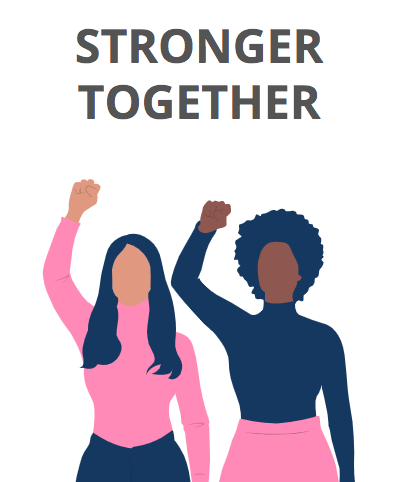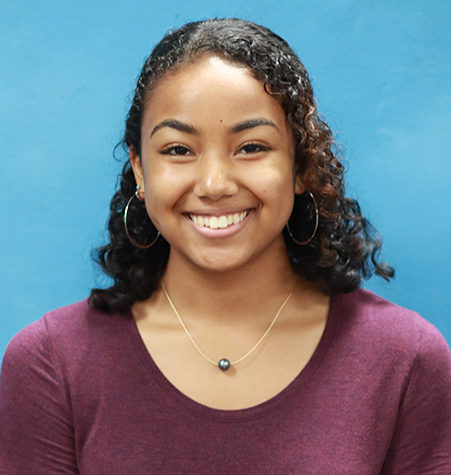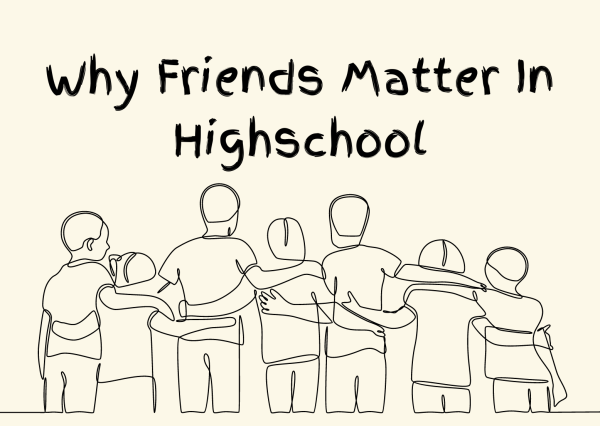Why we need ASA

I am the president of the African Student Association. Like any club, we have to learn how to manage meetings, socials, events, dues, and all the other usual stress that comes with organizing a club, especially at a school as big as ours. I have been involved in other clubs, sports, and organizations throughout my high school career, but there is something unique- and challenging about this one, and an experience I would like to share.
Whenever we are planning a meeting, I have a lot of things to keep in mind. Not just what we are going to talk about, but how we are going to talk about it because of the sensitivity of our club and the vulnerability of our members. We do not gather because we have common interests. In fact, we have a lot more differences than we have similarities. Just because we all identify as African American, that doesn’t mean that we come from the same places or that we were raised the same way. What truly holds our club together is our desire for change and a sense of community.
Black students make up a very small part of our demographic. In a school of over 2,000 people, there are less than 200 of us. When I first moved here my sophomore year, everyone told me how “diverse” Clements was. And it’s true, I’ve met so many people from different countries and heard so many different languages when I first roamed the halls. I thought it was amazing, and I still do. I think each student brings something to the table, and that’s what makes our school so unique, but even within this seemingly big cultural community, there is a voice missing out of the equation: black students.
We see our culture filter in and out of the curriculum and perhaps in the media, but if it’s not about the history of slavery, it’s about Lebron James or Beyonce. Yes, these are two amazing role models in the black community and our country as a whole, but not every black person was a slave or is an athlete or artist. We are more than what the media and textbooks portray us to be and I feel that in the process of losing pieces of our identity- our ancestry, our family, what we feel our legacy should be, there has been a growing sense of resentment and confusion in the black community. Why should I care? You may be thinking. Well, you should care not only out of human decency but because our country will only be as strong as our weakest person, just like our school will never reach its full potential until every student is given the resources to reach it.
Our club is very discussion-based. We have our black history month event which is where we get the most attention from the school itself, but a typical meeting isn’t planning an event or getting hours or points or whatever, it’s going around and sharing our experiences. ASA is important for this reason.
In most of my classes, I have been the only black person or one of two or three. It’s hard to feel comfortable to talk about how I’m feeling or perhaps call out a person for something they said that they may have not realized was racist or derogatory towards black people… because who would back me up? Where would my place be in that classroom?
Imagine going into a room of people with no one that looks like you, or no one that speaks the same language, or comes from the same place. Would you feel comfortable sticking up for yourself?
Sometimes I wished I could just blend in, but it’s literally impossible, and I feel that a lot of black students that I’ve met have this same struggle and attempt to do so so that they can have an easier time here.
That’s why it’s important that we have an outlet and it’s important that our club is recognized, respected, and valued because, for many, it is their only safe haven and their only place to express themselves.
There is a lot of stigma around our club. Even if it has not been said directly to me as any high school word travels around fast. And even if something hasn’t been said it is proven through actions, like black people saying that they don’t want to be associated with ASA or black staff not supporting our club. It starts with our community coming together, and from there we can connect with other people. But it’s really hard to connect with others and establish long-lasting relationships when you can’t connect with your own identity and embrace who you are.
This isn’t to say that you can’t love others until you love yourself or anything that cliche, It’s more that we should all feel comfortable enough to be ourselves, and being a part of ASA can give black students that confidence so that they can go out into our school and community and live up to their full potential, without the pressure of being a person that they’re not holding them back.
And once we establish that in our community, the rest of the population can do their part too. If you have a black friend or a friend who is a minority or even just having a hard time, listen to them. Don’t try to justify the way people treated them. Let them feel safe with you by acknowledging the way they are feeling and sympathize with their hardships and experiences.
Come to an ASA meeting with them if they feel uncomfortable or if they don’t know anyone there. Come to black history month or other cultural events even if you do not identify with that culture. If you hear someone saying something offensive about another culture or race, stick up for that group of people even if it’s not the one you identify with.
Little things like this can go a long way in our school, and I hope that after I graduate, ASA can become a prominent club in our school and that our members and supporters can be an example of the type of connectedness that we all want and the unity that we all need.

My name is Leila Stewart and I am a junior. I coach elementary girls volleyball, I'm the Vice President of ASA, and the co-editor of the Roundup. This...

